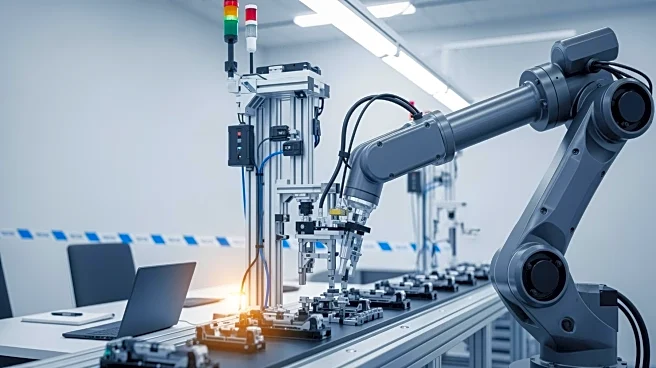What's Happening?
Stellantis, a major player in the global automotive industry, has unveiled a $13 billion investment plan aimed at expanding its U.S. manufacturing operations over the next four years. This move aligns
with President Trump’s ongoing efforts to encourage domestic production among large corporations. The investment will increase Stellantis' domestic production by 50%, introduce five new vehicle models, and create over 5,000 jobs across factories in Illinois, Indiana, Michigan, and Ohio. Stellantis CEO Antonio Filosa emphasized the importance of this investment in driving growth and strengthening the company's manufacturing footprint in the U.S. The plan includes significant investments in reopening and expanding plants, such as a $600 million investment in Belvidere, Illinois, and a $400 million investment in Toledo, Ohio.
Why It's Important?
This substantial investment by Stellantis is a direct response to President Trump’s reshoring agenda, which aims to bolster U.S. manufacturing and reduce reliance on foreign production. The initiative is expected to create thousands of jobs, thereby boosting local economies in several states. Additionally, the investment reflects a strategic shift in the automotive industry towards increasing domestic production capabilities, which could lead to more competitive pricing and innovation in the U.S. market. The tariffs imposed by President Trump have pressured companies like Stellantis to reconsider their supply chains and production strategies, potentially leading to long-term changes in the industry.
What's Next?
Stellantis plans to implement its investment strategy over the next four years, with specific projects such as the reopening of the Belvidere plant and the expansion of the Toledo facility. These developments are expected to unfold gradually, with job creation and production increases anticipated by 2027 and 2028, respectively. The company’s decision to scrap plans for a Canadian plant suggests a focused commitment to U.S. operations. Stakeholders, including local governments and industry leaders, will likely monitor the impact of these investments on regional economies and employment rates.
Beyond the Headlines
The decision by Stellantis to invest heavily in U.S. manufacturing could signal a broader trend among multinational corporations to prioritize domestic production in response to geopolitical pressures and economic policies. This shift may lead to increased scrutiny of supply chain practices and a reevaluation of global manufacturing strategies. The focus on electric vehicles and new technologies in Stellantis' investment plan also highlights the industry's move towards sustainability and innovation.










